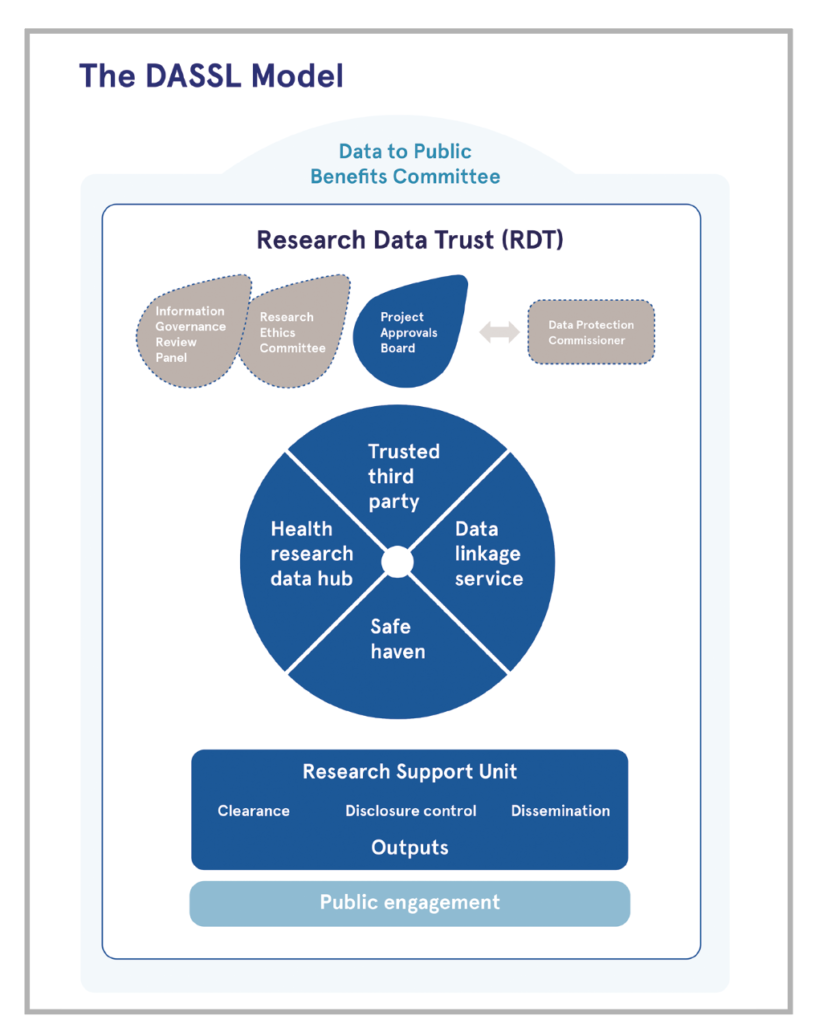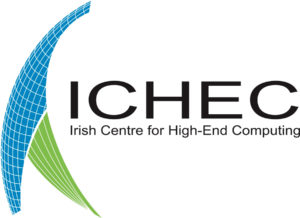The future of secure linked data analysis to improve health services in Ireland

The Irish Centre for High-End Computing (ICHEC) have been awarded a pilot project by the Health Research Board (HRB) to design and develop the infrastructure needed to share and link data securely, enabling research to improve the health service.
Data is one of our most valuable national assets, however, the lack of infrastructure and services in place to share, store or link data safely for research vastly limit the potential benefits of this data to improve the Irish health service. In the Irish health and research ecosystem, hospital data, disease registry data, data from longitudinal studies and surveys, census data, administrative data are routinely collected – but currently little can be done beyond their collection and stated use without being in breach of data protection legislation or ethical guidelines.
The pilot project, led by the Irish Centre for High-End Computing (ICHEC) at NUI Galway, will be the first steps to establishing an infrastructure that facilitates linking of multiple sensitive datasets in a safe environment to harness new insights from existing data, enabling research that has proven infeasible or intractable in the past. This will greatly enhance our ability to support health service planning and delivery and provide evidence for policy. Similar infrastructures and services are already in place and widely used across Europe, Canada and Australia, yet each country would have its own unique requirements and environments.
ICHEC will build on a model developed by the HRB called DASSL (Data Access, Storage, Sharing and Linkage; see Figure 1) which outlines the infrastructure and services to ensure:
• Safe projects (valid research purpose);
• Safe people (trusted researchers);
• Safe data and data governance (people’s data protected);
• Safe setting (security controls); and
• Safe outputs (disclosure control of outputs).
While the DASSL model provides a high level overview of all the different components required to conduct linked data research in a safe environment, the project will initially re-examine its relevance to the Irish health data landscape since its conception in 2016. This will be followed by the design and testing of the major infrastructural elements for safe use and linkage of these different data sets using synthetic data, i.e. fake data that resembles the characteristics of real health datasets. Research into state of the art techniques in data handling, anonymisation techniques and software that support data workflows will all be part of the project. The prototype infrastructure will also be tested against case studies that are based on real life questions and scenarios, e.g. how to improve on current protocols regarding prescription guidelines.
“Gathering robust sets of health data can be expensive and time-consuming, so it makes sense to use them to their full potential. The fundamental question is: how can we ensure data is used or shared safely, ethically and legally? This Proof of Concept initiative will create the blueprints for a future infrastructure in Ireland that will ensure safe access to health data and develop ways to share or link existing data responsibly for the benefit of people’s health and patient care.”
Darrin Morrissey, Chief Executive at the HRB.
In addition to the prototype infrastructure, a major outcome from the project will be a final report that lays the foundation for a national infrastructure for data access, sharing, storage and linkage of sensitive health, social care and related data and provides guidelines for the upscaling of the model. This report is expected to be published in late 2021. A further exercise will then be required to ensure the capacity, knowledge and resources are available within our current data ecosystem to upscale, develop and sustain this fundamental piece of national infrastructure.

A key aspect of the project is to engage with a wide range of stakeholders including patient groups to ensure broad awareness and consultation, to build confidence in the approach and to leverage support for the infrastructure at a national level.
“This project is a major step in addressing a real gap for the use of health data for research purposes in Ireland. We will be working with a wide range of partners nationally and internationally to ensure that what we build will not just be to the highest standard, but the design incorporates feedback from the Irish health ecosystem, the general public and the research community to ensure trust in the infrastructure,” says Dr Simon Wong, who leads the projects at ICHEC.
ICHEC at NUI Galway, will lead the two-year project supported by the HRB, working with researchers at the Royal College of Surgeons in Ireland (RCSI), Trinity College Dublin (TCD) and the Health Service Executive (HSE). Working with other national and international collaborators will also be crucial, including those based at the FutureNeuro Research Centre and the HRB Centre for Primary Care Research.

Simon Wong, PhD
Computational Scientist, ICHEC
T: +353 1 524 1608 (ext 25)
E: simon.wong@ichec.ie
W: www.ichec.ie





